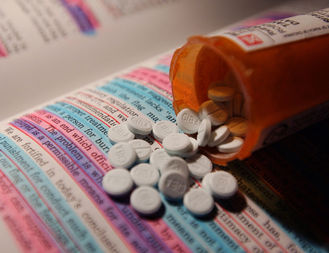
Over the last few years however, it has come to attention that the stimulants prescribed for ADHD are not always being used appropriately, rather they can be used as a performance enhancer at school, work or in sports, used as a recreational drug, or used to treat other psychological stresses and concerns. While some are able to get medications from their friends or family, others will visit their doctors to be diagnosed.
That being said, can the symptoms of ADHD be faked?
So what are physicians to do? Well as some of the articles below speak to, tips for making an accurate diagnosis include inquiring about the patient's childhood and past school performance (as often symptoms will have arisen early on), try to get collateral information from family members/teachers, rule out other diagnoses or underlying psychiatric or psychosocial concerns, watch for the red flags of prescription misuse (ex. refusing non-pharmacologic treatment, claims of lost or stolen medications, etc), and refer to a specialist when unsure. The Canadian ADHD Practice Guidelines (link below) also suggest that a diagnosis of ADHD should not be made in one visit, but rather over a series of visits to get a good history and to perform a number of tests to help make the diagnosis.
- "Faking Attention Deficit Hyperactivity Disorder" by Randy Sansone & Lori Sansone (Innovations in Clinical Neuroscience)
- "Faking ADHD: A Very Real Problem" by Alicia Potter (Inside ADHD)
- "Faking It: Why Nearly 1 in 4 Adults Who Seek Treatment Don't Have ADHD" by Meredith Melnick (TIme)
- "ADHD Fakers Hankering For Pills Thwarted by Lie Detectors" by Trista Kelley (Bloomberg)
- Canadian ADHD Practice Guidelines - CADDRA (Canadian ADHD Resource Alliance)
 RSS Feed
RSS Feed
